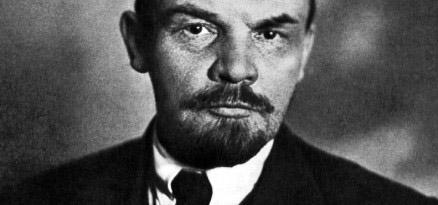
Some time ago, on another April 22, when we remember Lenin on his birthday, one of those people who devote their time to chasing every voice that expresses disagreement with the dominant discourse on the digital social media, questioned my thinking with the "argument" that the Russian revolutionary was old and outdated.
Shortly thereafter, the "Arab springs" and mobilizations of the "indignant" in the Western world led more than one shrewd publisher to re-publish Lenin’s “What is to be done?” and the very influential Slovenian philosopher Slavoj Zizek, who had already published his Repeat Lenin, spoke openly of the cursed “dictatorship of the proletariat.”
More recently, in search of an explanation for the fall of the Evo Morales government in Bolivia and the inability of popular forces to organize effectively to defend it, many of us turned to Lenin’s words in State and Revolution: "…When democracy reaches a certain level of development, it first unites the proletariat, the revolutionary class, against capitalism, and allows the possibility of destroying, of shattering, of sweeping from the face of the earth the machine of the bourgeois state, including that of the republican bourgeois state, the standing army, the police and the bureaucracy, and to replace them with a more democratic machine, but still a state, in the form of the armed working masses, as a step toward the participation of all the people in the militias.”
The demonization of Lenin, perhaps one of the longest in history, has not been able to prevent the originality and brilliance of his ideas from continuing to arouse admiration, nor shedding light on the critical approach to reality. But Lenin is much more than a theoretician. He was an energetic revolutionary fighter, not able to sit back and wait dogmatically for the "objective and subjective conditions" to be ripe for revolution. Rather, with his enormous confidence in the workers and exceptional political intelligence to take advantage of the errors of his adversaries, once Soviet power was established, he successfully challenged the war, poverty and the economic blockade of imperialist powers against the new state he founded on the ruins of Czarism.
A highly educated person, always open to discussion among comrades, he realized the limitations of a man like Stalin holding the position of Party General Secretary, and the dangers of the bureaucratization of socialism. He devoted his last moments, when his health allowed him to write, to insisting on the organization of workers' control over the Party and state apparatus. He fought hard against what he called "great Russian chauvinism," among some Bolshevik leaders who were not native Russians, like Stalin himself, and worked hard to establish equal rights and self-determination for peoples previously oppressed under Czarism.
An extraordinary polemicist, Lenin, like Fidel, and like Marx and Engels before him, was never afraid to name the author of the ideas he was disputing in his writings. His response to the "renegade Kautsky," whom he addresses with unrelenting irony and sarcasm, would horrify those who today defend bourgeois democracy as a solution to the problems of the majority: "The present ‘freedom of assembly and press’ in the German ‘democratic’ (bourgeois democratic) republic is a lie and a hypocrisy, because, in fact, it is the freedom of the rich to buy and bribe the press, the freedom of the rich to inebriate the people with the stinking liquor of lies in the bourgeois press, the freedom of the rich to ‘own’ stately mansions, the finest buildings, and so on.”
Anti-dogmatic by nature and a profound critic of his own work, Lenin is not the extremist propagandists usually paint. Faced with the herculean task of building a socialist state for the first time, where "all the agronomists, engineers and teachers came from the propertied class," he called for "taking all culture left by capitalism and building socialism with it. You have to take all the science, the technique, all the knowledge, the art. Without that we cannot build the life of a communist society.”
A passionate fighter for peace, a defender of justice, a practical man who could make the most of any situation, Lenin is an inevitable reference point for the anti-capitalist and anti-imperialist struggles of our time and for the construction of socialism. But even more, far from aging, this 150-year-old contemporary, his intelligence, his ethics, his broad culture and total dedication to the cause of the humble, serves as the paradigm of the leader needed by the world’s people in these difficult times.















